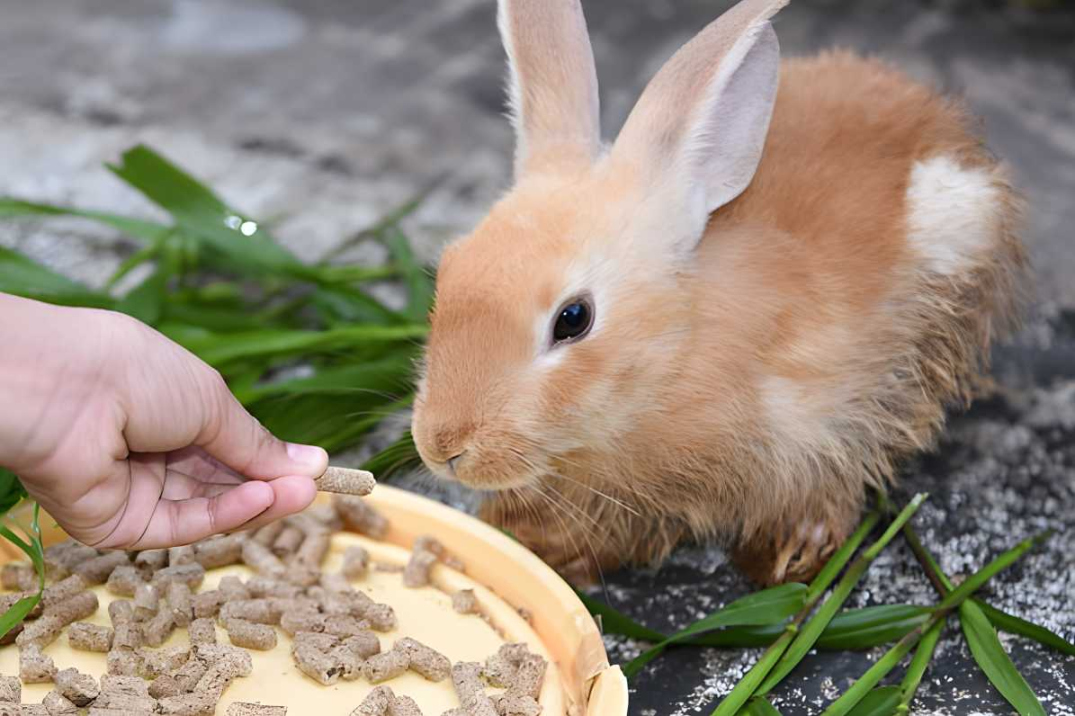How Long Can a Rabbit Go Without Eating?
Rabbits are known for their voracious appetite and their constant need to graze on fresh greens and hay throughout the day. However, there may be situations where a rabbit is unable to access food for a period of time. In these instances, it’s important to understand how long a rabbit can go without eating to ensure their health and well-being.

Factors Affecting a Rabbit’s Ability to Go Without Eating
The ability of a rabbit to go without eating depends on several factors, including its age, overall health, and the presence of any underlying medical conditions. It’s important to consider these factors when determining the length of time a rabbit can safely go without food.
Normal Eating Habits of a Rabbit
A typical rabbit consumes about 20-30 grams of hay per kilogram of body weight per day. They also require constant access to fresh water. Additionally, rabbits need a varied diet that includes fresh vegetables and a limited amount of pellets. Rabbits have a sensitive digestive system that requires a steady intake of fibrous food to maintain proper gut motility.
How Long Can a Healthy Rabbit Go Without Eating?
A healthy rabbit, with no underlying medical conditions, can typically go without food for about 24-48 hours. However, it’s essential to monitor their behavior and ensure they have access to fresh water during this time. Rabbits have a unique digestive system that relies on a constant intake of food to prevent gastrointestinal stasis, a potentially life-threatening condition.
Effects of Not Eating on a Rabbit
When a rabbit is unable to eat for an extended period, their digestive system can slow down, leading to gastrointestinal stasis. This condition occurs when the normal movement of food through the digestive tract is disrupted, resulting in a build-up of gas and potentially harmful bacteria. Gastrointestinal stasis can cause pain, discomfort, bloating, and even death if left untreated.
Signs of Gastrointestinal Stasis in Rabbits
It’s crucial to closely monitor a rabbit’s behavior if they haven’t eaten for more than a day. Signs of gastrointestinal stasis may include:
- Loss of appetite or refusal to eat
- Decreased or no fecal output
- Reduced activity and lethargy
- Hunched posture or reluctance to move
- Abdominal discomfort or bloating
Interventions to Encourage Eating
If your rabbit has not eaten for more than 24 hours, it’s essential to take immediate action to prevent gastrointestinal stasis. Here are some interventions you can try:
- Offer a variety of fresh greens and hay to stimulate the rabbit’s appetite.
- Provide small amounts of critical care formula, which is a high-fiber food that can help stimulate the digestive system.
- Consult a veterinarian for further guidance and potential medication to promote gut motility.
Remember:
If your rabbit has not eaten for more than 24 hours, it is crucial to seek veterinary assistance as soon as possible. Delayed intervention can have serious consequences for your rabbit’s health.
Frequently Asked Questions (FAQs)
1. Can rabbits survive without eating for more than two days?
A healthy rabbit can typically survive without eating for about 24-48 hours. However, it is crucial to monitor their behavior closely and seek veterinary assistance if they show signs of gastrointestinal stasis.
2. How can I prevent my rabbit from going without food?
Ensure your rabbit always has access to fresh hay and water. Additionally, provide a varied diet with fresh vegetables and a limited amount of pellets. Regularly monitor their eating habits to catch any potential issues early on.
3. Can stress cause a rabbit to stop eating?
Yes, stress can lead to a reduced appetite in rabbits. Changes in their environment, such as a move or the introduction of a new pet, can cause stress and result in a temporary loss of appetite. If your rabbit refuses to eat for an extended period due to stress, consult a veterinarian.
4. What should I do if my rabbit stops eating?
If your rabbit stops eating or shows a significant decrease in appetite, monitor their behavior closely. Offer a variety of fresh greens and hay to stimulate their appetite, and consult a veterinarian if the issue persists for more than 24 hours.
Related Articles…
Copyright Notice:
All images featured on this site are sourced from the internet, copyrights belong to respective owners. Should you own any image and require it to be removed, please contact us.